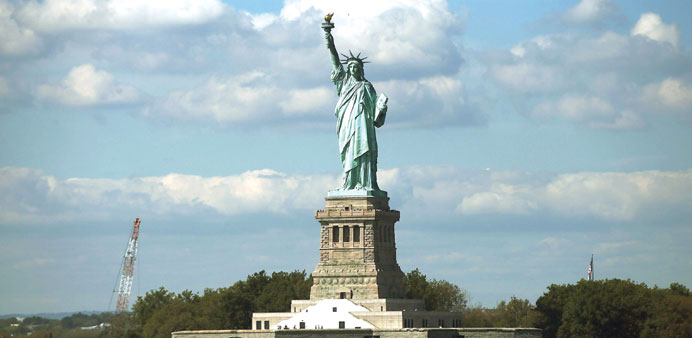The US Congress, still in partisan deadlock yesterday over Republican efforts to halt President Barack Obama’s healthcare reforms, was on the verge of shutting down most of the US government starting this morning.
With the law funding thousands of routine government activities set to expire at midnight, US Senate Democrats killed a proposal by the Republican-led House of Representatives to delay Obamacare for a year in return for temporary funding of the federal government beyond Monday.
After a partisan vote of 54 to 46 in the Senate, it now goes back to the House, where a senior Republican aide said the party would continue to seek a one-year delay in the Obamacare requirement for all individuals to obtain health insurance as part of a new spending bill. The measure also would require the president, senior administration officials and members of Congress and their aides to participate in Obamacare.
The Senate has so far rejected all House efforts to modify the health law in connection with the spending bill.
Obama, saying he was not “resigned” to a shutdown, said ahead of the Senate vote that he planned to talk to congressional leaders later yesterday as well as today and tomorrow but held out no new offer of compromise.
Failure to reach an agreement to extend funding would force many federal agencies and programmes to close or partially close for the first time in 17 years, putting up to 1mn federal workers on unpaid leave. The military would still function normally, but many civilian employees would be sent home.
Some functions deemed essential, such as US Department of Agriculture meat inspections, would continue. Other agencies, including those in the vast Washington’s regulatory establishment, will be left with skeleton crews for emergencies.
A shutdown would continue until Congress resolves its differences. That could be a matter of days, or weeks.
The standoff did not bode well for the next political battle, a far-more consequential bill to raise the federal government’s borrowing authority. Failure to raise the $16.7tn debt ceiling by mid-October would force the US to default on some payment obligations - an event that could cripple its economy and send shockwaves around the globe.
Global stock markets fell and the dollar dropped against major currencies yesterday as investors worried about the prospects of a partial US government shutdown. The Dow Jones industrial average was down 0.8%, and the dollar traded 0.4% lower against a basket of six major currencies.
“The government is such an important part of the entire economy, between the people it employs and the impact it has on consumer confidence,” said Nicholas Colas, chief market strategist at the ConvergEx Group in New York. “The size of the selloff is logical given the stakes.”
The two parties continued to blame each other yesterday for failing to avoid the impending shutdown. Republicans accused Obama of ignoring their pleas for negotiations.
“This president hasn’t been involved at all with the leadership or with the Congress,” Representative Matt Salmon, an Arizona Republican, told MSNBC’s Morning Joe programme, adding that Obama has not contacted Boehner in more than a week.
But he said Republicans would not give up their quest to thwart the implementation of Obamacare, a programme aimed at providing healthcare coverage to millions of uninsured Americans. Republicans say the launch today of new online government health insurance exchanges will cause premiums to rise and deter companies from hiring new workers.
Salmon, who was in Congress during the last shutdown from late 1995 to early 1996, said Republicans do not want to see a shutdown but would keep fighting against Obamacare with another proposal. “We should go back at them,” he said.
Democratic Senator Charles Schumer of New York said he was still holding out some hope that the House Republicans “would come to their senses” and vote to keep the government open.
“It is extortion,” Schumer, speaking on Morning Joe, said of Republicans’ strategy. “It’s holding the good of the country - the economy, middle-class people at risk.”

